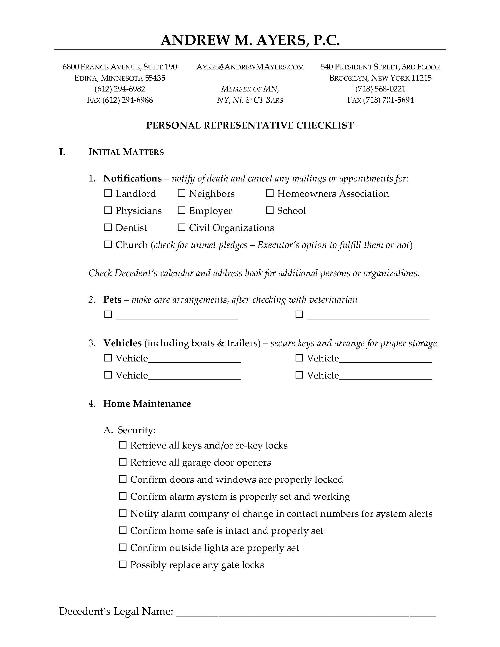 Have you ever wondered if you could leave a legacy at a place that's close to your heart? At consultations, clients often ask me if they can include their church or synagogue in their estate planning. And the answer is a resounding YES. In Minnesota and indeed most parts of the country, it's not just permitted, it's celebrated. It's a timeless way of expressing gratitude to your faith community, rewarding them for the moral guidance they've provided.
Have you ever wondered if you could leave a legacy at a place that's close to your heart? At consultations, clients often ask me if they can include their church or synagogue in their estate planning. And the answer is a resounding YES. In Minnesota and indeed most parts of the country, it's not just permitted, it's celebrated. It's a timeless way of expressing gratitude to your faith community, rewarding them for the moral guidance they've provided.
In the legal world, we call this a 'bequest' – the act of gifting, through your will, assets or property to the individuals or organizations that matter to you. The beauty of a will is in its specificity; you control who benefits from your legacy.
So next time you're revising your will, remember - you can give a little back. It's a small step that can make a big impact on the community that's shaped you. So let's take a look and how you can make it happen to add your church to your estate plan.
How Do I Do It?
There are two common ways that I’ve seen people leave a bequest to their house of worship. The first way is with a specific bequest in their will or trust. This normally says you leave $____ to your house of worship.
The second way is to leave a bequest from your residuary estate (what’s left after your other specified distributions). This type of bequest commonly comes when there is part of your estate that is left over because the people who were supposed to inherit the property are unable to inherit it. An example of this is if you leave everything to your brother, but your brother dies before you. In that case, rather than have the state where you live choose where your assets go, you can designate your house of worship to receive it.
Both of these options can achieve the goal of leaving money to your church. Still, it's important to understand that using the specific bequest will mean that the money will be left to the church for sure. In contrast, a bequest from your residuary estate will only go to the church if the other people who are named in your estate are unable to take their inheritance (they are already dead or they choose not to accept their inheritance, called a disclaimer).
Ask Your Church Or Synagogue
The first thing I suggest to anyone considering this is to ask your church or synagogue how they handle estate-planning gifts. Most houses of worship have an individual in charge of managing bequests. They probably already have a booklet or information sheet on the process. Many even have the exact wording of a provision that you can just have your attorney place into your will. If they have specific projects or capital campaigns, the language may even specifically direct where your bequest should be spent.
You may also find that you are the first person to ask that question. In this case, you may be the vanguard who spearheads a new source of revenue for your house of worship! You may spur them to create a program for legacy donations and your legacy will live on helping them grow for the future.
Do You Need an Estate Plan?
If you don't already have an estate plan, or if you have one that needs to be updated, let's schedule a Legal Strategy Session online or by calling my Edina, Minnesota office at (612) 294-6982 or my New York City office at (646) 847-3560. My office will be happy to find a convenient time for us to have a phone call to review the best options and next steps for you to work with an estate planning attorney to get your estate plan prepared.





